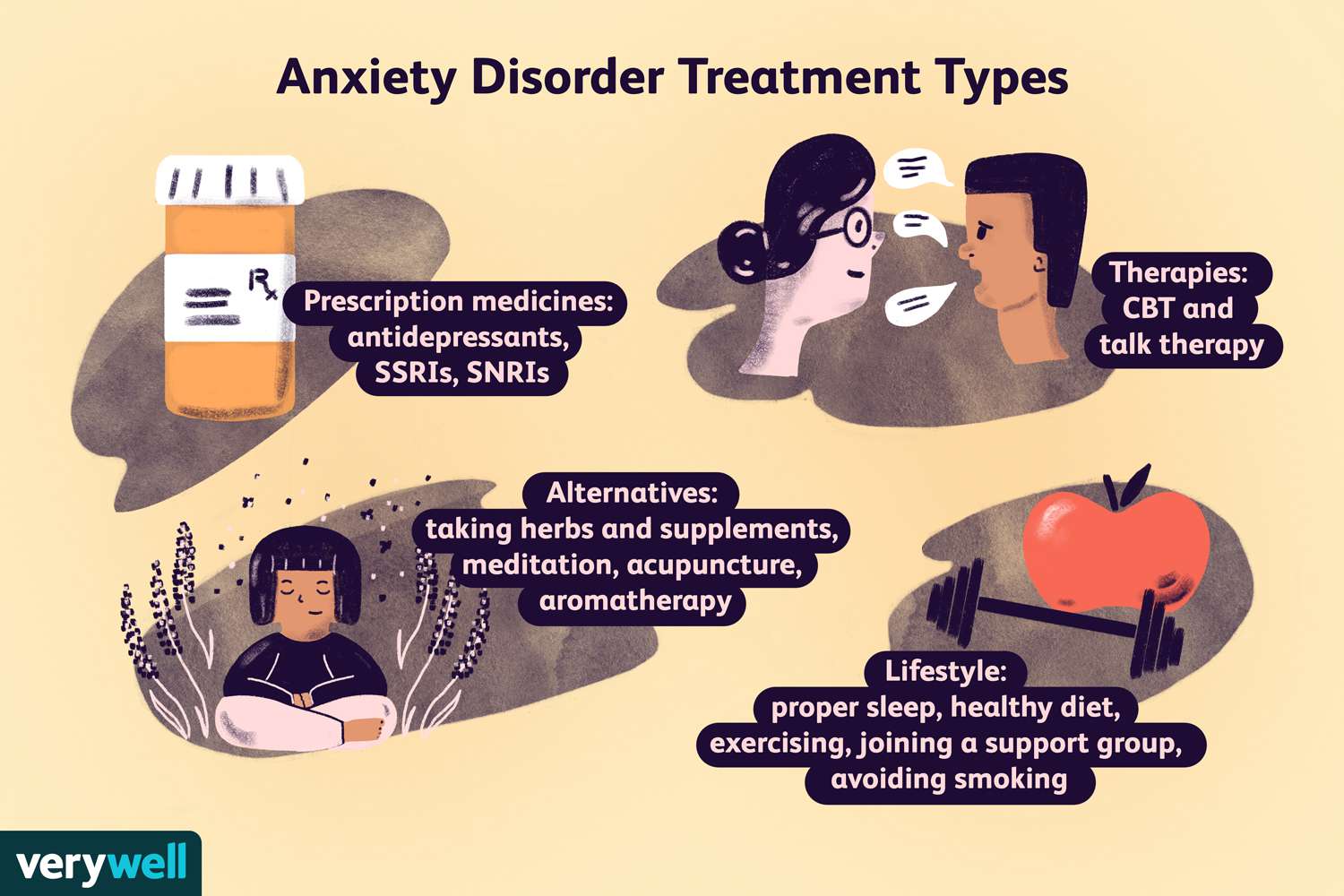Anxiety disorders are one of the most common mental health conditions, affecting millions of people worldwide. While medication and therapy have proven effective in treating anxiety, lifestyle changes can also play a crucial role in managing symptoms. In fact, research has shown that adopting healthy habits can help alleviate stress and anxiety, improve overall well-being, and reduce the risk of future episodes.
With so many lifestyle options available, it can be overwhelming to determine which approach is best for anxiety treatment. From exercise and diet to mindfulness practices and sleep hygiene, there are countless strategies that claim to help with anxiety. In this article, we will explore various lifestyle approaches and examine their effectiveness in managing anxiety symptoms.
Defining anxiety and its impact
Anxiety is a mental health disorder characterized by excessive worry, fear, and apprehension about future events or situations. It can manifest through physical symptoms like sweating, trembling, and heart palpitations. Anxiety can be debilitating and significantly impact an individual’s quality of life, affecting their work performance and relationships. It is essential to address anxiety as it can lead to depression, substance abuse, or suicidal thoughts.
One approach to managing anxiety is adopting a healthy lifestyle. Anxiety treatment Spokane residents dealing with anxiety have access to various treatment options that can help them overcome their symptoms and improve their quality of life.This includes regular exercise, proper sleep hygiene, healthy eating habits, limiting alcohol consumption and avoiding smoking or drug use. Exercise releases endorphins that improve mood and reduce stress levels while improving overall physical health. Good sleep habits also reduce anxiety levels as poor sleep quality exacerbates the condition. Eating nutritious foods provides essential nutrients that boost brain functioning leading to better mental health outcomes.
Pros and cons of traditional treatment methods
Traditional treatment methods for anxiety typically involve medication and therapy. One of the main advantages of medication is that it can provide quick relief from symptoms such as panic attacks. It can also help individuals to manage their anxiety in the long-term, reducing the risk of relapse. However, medication may not work for everyone and can have side effects such as nausea, dizziness or drowsiness.
Therapy is another traditional treatment method for anxiety disorders. It involves working with a therapist to identify triggers and develop coping strategies to manage symptoms. Therapy can be effective in helping individuals to overcome social anxiety, phobias and other types of anxiety disorders. However, therapy requires a significant investment of time and effort, which may not be feasible for everyone.
Mind-body connection:
The mind-body connection is a powerful phenomenon that has been studied extensively in recent years. It refers to the link between our physical and mental health, and how each affects the other. This connection can have significant implications for those dealing with anxiety, as stress and anxiety can manifest physically in the body.
One approach to managing anxiety through the mind-body connection is through mindfulness practices such as meditation or yoga. These practices encourage individuals to focus on their breath and bodily sensations, which helps to calm the mind and reduce stress levels. Additionally, regular exercise has been shown to release endorphins that positively impact mood and reduce feelings of anxiety.
How physical activity impacts mental health
Physical activity is crucial for maintaining mental health and preventing anxiety. Exercise helps to release endorphins, which are natural mood-boosters that promote feelings of happiness and well-being. Additionally, regular physical activity can reduce stress levels by lowering cortisol levels in the body.
Incorporating a consistent exercise routine into your lifestyle can also improve sleep quality, another important factor for managing anxiety. Quality sleep allows the brain to recharge and process emotions effectively, leading to better overall mental health. Overall, getting psychiatrists help or making physical activity a priority in your daily routine can have significant positive effects on your mental health and well-being. Whether it’s a leisurely walk outside or a more intense workout at the gym, finding an exercise that you enjoy and sticking with it can greatly benefit both your mind and body.
The importance of nutrition in anxiety management
One of the most important aspects of anxiety management is nutrition. What we eat can significantly impact our mood, energy levels, and overall well-being. A diet rich in whole foods such as fruits, vegetables, lean proteins, and healthy fats has been shown to reduce symptoms of anxiety.
Research suggests that certain nutrients play a key role in supporting mental health. For example, magnesium has been linked to lower levels of anxiety due to its ability to relax muscles and calm the nervous system. Omega-3 fatty acids found in fish oil have also been found to improve mood and reduce symptoms of depression and anxiety. On the other hand, consuming high amounts of sugar, caffeine, or processed foods may worsen anxiety symptoms by causing blood sugar imbalances or disrupting sleep patterns. Therefore, it’s important for individuals with anxiety to prioritize their diets by choosing nutrient-dense foods while avoiding those that may exacerbate symptoms.
Relaxation techniques:
Relaxation techniques are a powerful tool for treating anxiety. They can reduce stress and promote a sense of calm, which makes it easier to manage anxious thoughts and feelings. There are many different techniques that can be used, including deep breathing exercises, progressive muscle relaxation, visualization, meditation, and yoga.
Deep breathing is one of the simplest relaxation techniques and can be done anywhere at any time. It involves taking slow, deep breaths in through the nose and out through the mouth. Progressive muscle relaxation involves tensing and then relaxing different muscle groups in turn to release tension from the body. Visualization is another technique that involves imagining a peaceful scene or situation to help calm your mind. Meditation focuses on being present in the moment by clearing your mind of distracting thoughts. Yoga combines physical postures with controlled breathing to promote relaxation and reduce stress.
Conclusion:
In conclusion, anxiety is a common mental health disorder that can have a severe impact on an individual’s quality of life. However, taking a holistic approach to lifestyle changes can significantly reduce the symptoms of anxiety. These changes may include regular exercise, a healthy diet, quality sleep, mindfulness practices, and social support. Incorporating these habits into your daily routine can help alleviate the pressure caused by anxiety and improve your overall well-being. If you are struggling with anxiety, it’s essential to consult with a healthcare professional to determine what treatment options are right for you. Remember that small steps towards a healthier lifestyle can make a significant difference in managing anxiety symptoms and promoting better mental health outcomes.

